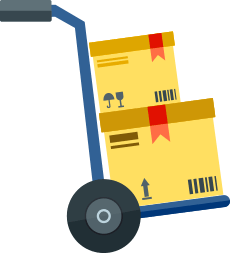|
|
|
|
Welcome to the November/December 2015 issue of the HA&W State & Local Tax (SALT) Newsletter.
With dozens of different taxes imposed by the 50 states (and thousands of local jurisdictions), we recognize how challenging it is to keep up with current issues and developments. This newsletter is designed to provide insights on developments in state and local taxes including new legislation, regulations, rulings and cases addressing issues such as corporate and personal income taxes, sales and use taxes, nexus, franchise/net worth taxes, etc.
This issue of the newsletter includes articles addressing (i) the ability of contractors in Florida to utilize their customer’s sales tax exemption, (ii) when a taxpayer must register for sales tax in Virginia, (iii) Washington’s market-based sourcing rules for service revenue, (iv) a unique sales tax exemption in California that may apply to software licenses and (v) the treatment of leased employees for Utah’s payroll factor.
In case you missed prior issues of this newsletter, please click here.
If you have any comments, questions or suggestions regarding current or future topics, or if you would like to learn more about HA&W’s SALT Practice, please email us at jeff.glickman@hawcpa.com. Thank you.
 |
Jeff Glickman, J.D., LL.M.
Partner-in-Charge, State & Local Tax Practice. |
|
|
Florida Addresses Whether Lump-Sum Contractors May Utilize Customer-Specific Sales Tax Exemptions
By Tina Chunn, SALT senior manager
If a contractor is used to construct a building which will be used by a sales tax-exempt entity, can the exemption be assigned to the contractor and applied to the contractor’s purchases? Read More
|
|
 |
Virginia Rules That Owning Resale Inventory in the State Does Not Require Sales Tax Registration
By Jess Johannesen, SALT senior associate
A recent Virginia ruling illustrates how states are permitted to set nexus requirements that are less stringent than the constitutional requirement. Read More
|
|
Washington Ruling Explains Business & Occupation Tax Market-Based Sourcing Rules for Service Revenue
By Jeff Glickman, SALT partner
A non-Washington corporation that provides technical authoring services to a manufacturer was required to source revenues to Washington since that is the location where the services were ordered. Read More
|
|
|
|
|
California Rules That License of Software Pursuant to a Technology Transfer Agreement Is Not Taxable
By Jeff Glickman, SALT partner
In California, software licenses delivered to a customer on a tangible medium may be exempt from sales/use tax if the software license is included as part of a technology transfer agreement, as demonstrated in a recent case. Read More
|
|
|
Utah Rules That Leased Employees’ Wages Should Be Included in the Payroll Factor
By Jeff Weinkle, SALT manager
Utah determined that the wages of leased employees should be included in the payroll factor because the taxpayer determined the hours and conditions of the employment and exercised the type of control that indicates an employer-employee relationship. Read More
|
|
Procedural Update: Alabama and Georgia Sales Tax
By Jeff Weinkle, SALT manager
In Alabama, entities that have statutory exemptions from sales tax and are not otherwise required to obtain a sales tax license must reapply for a new Form STE-1 certificate, while a proposed Georgia regulation would cause all direct pay permits issued prior to April 1, 2016 to expire. Read More
|
|
Washington: Arguing Lack of Nexus for B&O Tax Can Prove to be a Tough Haul
By Tina Chunn, SALT senior manager
Taxpayers can sometimes find themselves in audit situations that have become out of control, as one trailer manufacturer found out in a recent Washington Tax Determination. Read More
|
|
Indiana Permits Taxpayer to Claim Temporary Storage Exemption for Software Licenses
By Jess Johannesen, SALT senior associate
Some states have rules that allow sellers to only collect sales/use tax based on the use in the state at issue. But this concept has not yet been widely adopted, and some taxpayers have tried to utilize other rules to achieve similar results. Read More
|
|
South Carolina Applies True Object Test to Sanitation Business |
By Jeff Glickman, SALT partner
How does a seller know if, for sales tax purposes, a transaction should be treated as taxable property or a nontaxable service? Guidance in South Carolina and Georgia illustrates how the “true object” test can be used to make a determination. Read More |

|
|
|
About HA&W's State & Local Tax Practice
HA&W’s State & Local Tax (SALT) practice advises clients on the state and local tax implications of their business operations, allowing clients to strategically minimize their liabilities and risks. Our team has over 50 years of combined SALT experience in industry, state government, public accounting, and private law practice. We specialize in all areas of SALT, including matters related to corporate and personal income taxes, sales/use tax, nexus, franchise/net worth taxes, credits and incentives, and mergers & acquisitions. In addition, we represent clients in administrative matters before state revenue departments around the country, including audit defense and settlement negotiations, pursuing voluntary disclosure agreements, and obtaining letter rulings.
|
|
|
|
|